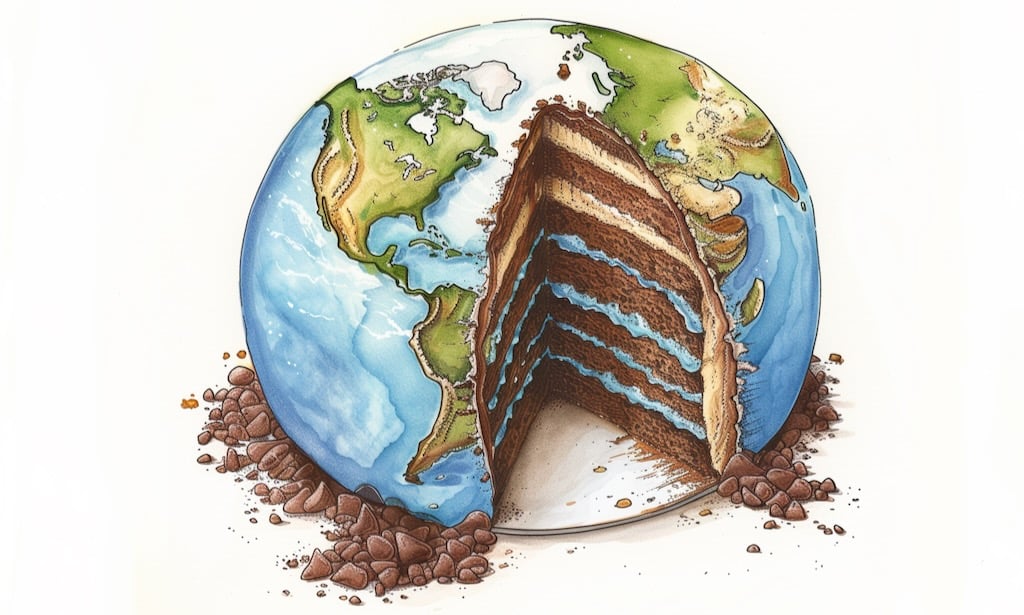We think of the value of anything as its “worth.” While one’s worth may certainly include financial wealth, worth extends far beyond that, as Worth chairman Jim McCann points out. It includes one’s psychological capital, social capital and financial capital. Loneliness erodes both social capital and psychological capital in the same way a recession erodes financial capital. But just as you can recover from a financial recession, so too can you recover from a psychological and social recession.
Research reveals that human connection is not only the best way to build resilience and rebound from adversity, it is the best way to protect investors and entrepreneurs from the epidemic of loneliness and psychological isolation. Science tells us that if you follow the suggestions below, you can learn to combat psychological isolation and build “total worth”—that is worth beyond financial wealth. And the good news is it all begins with you.

According to national—as well as international—research, there exists a silent pandemic. It is insidious, malignant and can be deadly, as it increases your risk of premature death. It can be worse around holidays. The silent pandemic is loneliness. Psychologically, it is associated with anxiety and depression, even suicide. It is fueled by a pervasive sense of uncertainty. Physically, it is associated with coronary heart disease and stroke. The risk of premature death associated with loneliness and isolation is equal to smoking 15 cigarettes per day. It is even more dangerous than obesity. While revelation of this problem may not be new, its unrelenting and increasing prevalence is of growing concern. In this article, I offer a novel perspective on overcoming loneliness. Rather than passively wait for the affiliation of others, I believe overcoming loneliness actually begins with you.
Overcoming Loneliness Starts With You
I said earlier that I believe overcoming loneliness starts with you. That may sound contradictory as affiliation and connection with others combats loneliness. In addition, social capital is the best predictor of human resilience. So, how does that work? It turns out that a sense of calm and a receptive confidence appear to be powerful means of fostering relationships with others. They are magnetic.
Sir William Osler, the first physician-in-chief at Johns Hopkins Hospital, was considered the finest physician of his time. Although a student of the Stoic Greco-Roman philosophers, he was considered an optimist. On May 1, 1889, he delivered a speech entitled “Aequanimitas,” which he viewed as a calm imperturbability and receptive confidence. He considered it one of the most important of all virtues.

The world has dramatically changed since Osler’s time. It seems more fragmented, dynamic and uncertain than ever. As noted above, many of us view this uncertain world through a lens of loneliness, fear and trepidation, even impending doom. In doing so, we surrender happiness and control of our lives to the very things we fear the most. Perhaps a revised approach to equanimity is in order for times like these—and all times of loneliness and uncertainty. Here are 10 suggestions for combatting loneliness by building equanimity.
1. Though a seeming contradiction, overcoming loneliness and its associated uncertainty and angst comes from within. So that said, first and foremost, be kind to yourself.
2. Second, be kind and compassionate with others. Treat others the way they want to be treated.
3. When angered or annoyed, try—even just for a moment—to take the other person’s perspective. Try to see the world through their eyes. You may not agree with their views, but there is always something new to learn from others. And in the process, you will hone your social intelligence.
4. Left to its own devices and without a focus, the mind often descends into an abyss of darkness, worry and despair. Mindfulness combats worry. Stay focused. Wherever you are and whatever you are doing, be there. Be there in that moment. Involvement guards against loneliness.
5. Philosopher and Roman emperor Marcus Aurelius suggested control what you can, cope with the rest. But remember the only thing you can really control is how you react to the world as it unfolds around you.
6. Psychiatrist and World War II concentration camp survivor Viktor Frankl advised to mind the gap! There is always a gap of time that separates your thoughts from your actions. In most situations, impulsive action leads to an undesirable outcome. Slow down. Think before you act. When in doubt about how to best act, simply delay. But remember, the moment of absolute certainty never arrives.
7. Remember as muscles grow stronger with challenge and resistance, so do people. The adversities you face today could be the building blocks of greater strength tomorrow.
8. My father taught me, through example, that life is a journey, not a destination. If you believe that, there is no such thing as failure—only lessons to be learned and milestones that can be opportunities to shape the journey. Destinations, no matter how passionately pursued, seldom live up to expectations. It really is all about the journey.
9. If you do not believe you can shape your future, you will be forced to endure it.
10. Lastly, staying connected to others, even if physically distanced, makes you stronger. This is a good time to rekindle old friendships, or bury old hatchets, but more importantly, it is an opportunity to create the relationships you wish you had. Never forget, whether you know it or not, you are part of something greater than yourself…you are never really alone.
George S. Everly, Jr., PhD, FAPA, has studied stress and human resilience for over 40 years in over 30 countries. He has received numerous national and international awards for his research and practice. Dr. Everly currently serves on the faculties of the Johns Hopkins Bloomberg School of Public Health and the Johns Hopkins School of Medicine. He is the author of 20 books.






